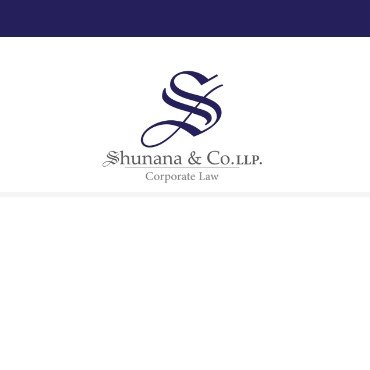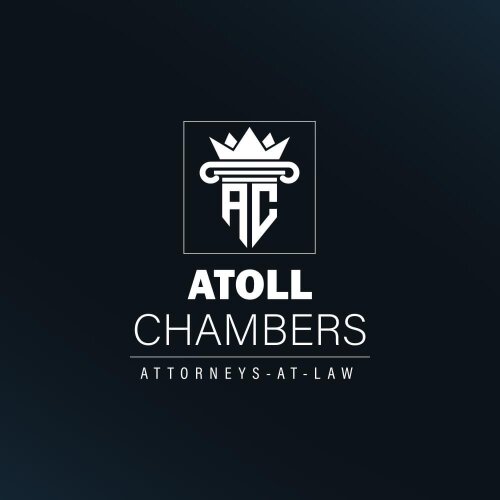Best Whistleblower & Qui Tam Lawyers in Maldives
Share your needs with us, get contacted by law firms.
Free. Takes 2 min.
Or refine your search by selecting a city:
List of the best lawyers in Maldives
About Whistleblower & Qui Tam Law in Maldives
Whistleblower and Qui Tam Laws in Maldives is a grey area as specific protections and appropriate legislation for whistleblowers are yet to be fully developed and recognized. Although the Maldivian Constitution does recognize the right to freedom of expression, there isn't a clear mechanism that encourages or protects individuals who expose wrongdoing, corruption, or illegal activities. However, international legal instruments like the United Nations Convention against Corruption (UNCAC), to which Maldives is a party, broadly advocate for whistleblower protections.
Why You May Need a Lawyer
Theoretically, anyone who uncovers illegal activities, fraud, or misconduct within an organization can be a whistleblower. However, whistleblowing without proper legal protections can attract backlash, professional ostracization, unwarranted legal scrutiny or even personal threats. Herein lies the importance of legal representation. A lawyer can guide you on the best way to expose the wrongdoing without infringing on any laws, as well as fight for your rights in case of any unfavorable fallout. Given the complex terrain of these laws, it is even more crucial in Maldives to have a legal representation who understands not only the local laws but also how international principles apply.
Local Laws Overview
As of now, local Maldivian laws do not offer comprehensive guidance for whistleblowers or Qui Tam cases. The country's Constitution does not specifically address whistleblowing, and general law protections may not offer adequate recourse in cases of retribution or prosecutorial decimation. In the absence of such laws, the broader principles contained within international treaties such as the UNCAC may be of use. These agreements urge countries to promote transparency, fight corruption, and allow provisions for people to report unethical practices confidently. As a party to such agreements, Maldives is expected to uphold these principles.
Frequently Asked Questions
What is a whistleblower?
A whistleblower is someone who uncovers and reports unethical, illegal, or misconduct activities within a private or public organization.
What does Qui Tam mean?
Qui Tam is a provision of legislation that enables whistleblowers to file lawsuits on behalf of the government if they believe a violation has been committed and the government has suffered a loss.
What protections do whistleblowers have in Maldives?
Currently, there are no specific statutory protections for whistleblowers in Maldives. However, freedom of expression is a constitutional right, but no mechanisms exist to protect whistleblowers explicitly.
What could happen if I act as a whistleblower without legal representation?
Without legal representation, whistleblowers could face backlash, both professionally and personally. They could be subjected to legal scrutiny and various forms of retaliation.
What laws does Maldives have to protect whistleblowers?
As of now, the Maldivian law does not offer specific protection for whistleblowers. However, the principles of various international agreements which Maldives is a party to may apply.
Why might I need a lawyer?
A lawyer can help guide you to whistleblow legally, protect your rights and interests, and represent you in the face of any backlash or legal challenges.
How can legislation protect whistleblowers?
Legislation can protect whistleblowers by ensuring confidentiality, setting procedures for complaints, preventing retaliation and providing legal remedies for whistleblowers suffering retaliation.
Can a whistleblower be rewarded?
In certain jurisdictions and situations, whistleblowers may receive monetary rewards. However, this is not a common practice in Maldives due to the absence of specific legislation.
Can a whistleblower remain anonymous?
Though anonymity can sometimes be maintained, it is not guaranteed due to lack of specific regulations in Maldives.
What is the process of whistleblowing in Maldives?
The process is not clearly outlined in the Maldivian law. But generally, the information about misconduct should be reported to law enforcement agencies, a lawyer, or proper authorities who can take necessary action.
Additional Resources
Even though there are no local Maldivian resources exclusively focused on whistleblowing and Qui Tam, international resources like Transparency International, United Nations Convention Against Corruption (UNCAC), and the Whistleblowing International Network can provide much-needed insights and support in this area.
Next Steps
If you believe you may need to whistleblow, it is essential to contact a legal professional who has expertise in this area. They can provide guidance on the safest and most effective methods to disclose information, understand the potential implications, and stand up for your rights in case of any backlash. Remember, while Maldives does not have specific laws for whistleblower protection currently, the principles agreed upon in international treaties can serve as a form of legal backing.
Lawzana helps you find the best lawyers and law firms in Maldives through a curated and pre-screened list of qualified legal professionals. Our platform offers rankings and detailed profiles of attorneys and law firms, allowing you to compare based on practice areas, including Whistleblower & Qui Tam, experience, and client feedback.
Each profile includes a description of the firm's areas of practice, client reviews, team members and partners, year of establishment, spoken languages, office locations, contact information, social media presence, and any published articles or resources. Most firms on our platform speak English and are experienced in both local and international legal matters.
Get a quote from top-rated law firms in Maldives — quickly, securely, and without unnecessary hassle.
Disclaimer:
The information provided on this page is for general informational purposes only and does not constitute legal advice. While we strive to ensure the accuracy and relevance of the content, legal information may change over time, and interpretations of the law can vary. You should always consult with a qualified legal professional for advice specific to your situation.
We disclaim all liability for actions taken or not taken based on the content of this page. If you believe any information is incorrect or outdated, please contact us, and we will review and update it where appropriate.
Browse whistleblower & qui tam law firms by city in Maldives
Refine your search by selecting a city.









